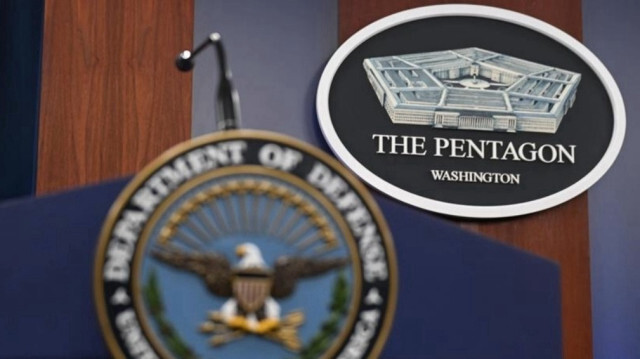Stormy Details Surface in Trump Trial Saga
As Donald Trump faces legal battles, the testimony of ex-porn star Stormy Daniels brings salacious details and legal implications to light.
Published May 10, 2024 - 00:05am

Image recovered from informalia.eleconomista.es
During a controversial encounter in a hotel, former adult film actress Stephanie Clifford, better known as Stormy Daniels, shared a harrowing testimony as a witness in the bribery trial against former US President Donald Trump. Daniels claimed that during their sexual relations, the power imbalance was evident, though she wasn't verbally or physically assaulted by Trump.
Daniels expressed her embarrassment in court, stating she felt ashamed for not having stopped it 'in time', and she fled as soon as possible after the encounter. Throughout her testimony, she highlighted her expectation for Trump to be held accountable and, if found guilty, to face imprisonment. Despite no exchange of money, phone numbers, or insistence on confidentiality from Trump, Daniels remains adamant about her motivations—aiming to rid herself of a story that overshadowed her since the revelations of Trump's past sexual exploits surfaced in the 'Access Hollywood' recording.
Moreover, Clifford's acknowledgment that she risked breaching a confidentiality agreement during her interview for '60 Minutes', along with the complications surrounding the payment of $130,000 as part of the agreement, drew further attention to the case's complexity. She encountered Trump in 2006 at a golf tournament, and though their interactions were initially brief and informal, promises of television appearances and subsequent meetings unfolded.
As Trump's campaign for president ramped up in 2016, attempts to bury past sexual scandals through alleged payments were scrutinized. Daniels, threatened to keep silent about the extramarital affair she claims to have had with Trump, adhered to a confidentiality agreement out of fear for her safety. Trump's attorney, Michael Cohen, facilitated the $130,000 payment, leading to Cohen's later conviction.
In response to the unfolding trial, Trump's defense team has attempted to discredit Daniels, suggesting her expertise in portraying fictional sexual encounters as real. Daniels rejected these allegations, insisting on the truthfulness of her account while further testimonies and cross-examinations shed light on the gravity of the legal and political stakes at hand.
As the proceedings advance, a broader spectrum of implications for not just Trump, but the foundations of US political integrity, transparency, and accountability, come under examination in a historical first for an ex-US President.
The courtroom, packed with media and onlookers, was a microcosm of the divided sentiments that run across the nation on the matter. Stephanie Clifford's, or Stormy Daniels as she is widely known, presence and testimony were a stark reminder of the unusual nature of this trial, entangling personal indiscretions with potential legal breaches. Her admission of feeling pressured, albeit not through physical force, underscores the nuances inherent in power dynamics between a future president and a private citizen.
In vivid detail, Daniels recounted the circumstances that led to signing the nondisclosure agreement—clauses that were intended to staunch the public flow of what she described as a deeply personal and troubling episode. The $130,000, routed through various entities and purposed as "hush money", is at the core of whether campaign finance laws were violated during the lead-up to the 2016 presidential election. Since this payment might be classed as an illicit contribution to Trump's campaign, its legalities take center stage in the proceedings.
What makes the trial gripping is not just the salacious background or the high-profile figures involved but the potential precedent it could set. For the first time, the American legal system is directly challenging a former president's actions with the operative question being: can a sitting, or former, commander-in-chief be held to the same legal standards as any other citizen? The future of American jurisprudence could pivot significantly on the back of this case's outcome.
Legal experts and political analysts are scrutinizing every detail as the case unfolds. They point out that the outcome of this trial may affect how future leaders conduct themselves while in office, and perhaps more importantly, how they are treated by the legal system after their terms end. The balance between maintaining the dignity of the presidential office and ensuring that no individual stands above the law will be observed with bated breath.
As Daniels left the stand, there appeared to be a collective air of contemplation within the courtroom walls. While the defense may argue that the charges brought forward are a result of politicized motives to tarnish Trump's reputation, the prosecutors maintain that this is a straightforward case of justice and maintaining the rule of law, regardless of the individual's status or past position.
Throughout this time, Trump has vehemently denied any wrongdoing, painting the ongoing legal battle as a witch hunt orchestrated by his opponents. Nevertheless, the evidence presented and the intricate web of transactions and agreements draw a complex picture for the jury to dissect. The trial continues to reveal the intricate tapestry of events that led to this historic moment where a former leader of the free world sits indirectly in the accused's position, perhaps paving the way for certain pivotal changes in how America views its leaders and holds them accountable.
As testimonies continue and the world watches, the outcome of the trial could resonate far beyond its verdict. It may well recalibrate the moral and ethical compass by which public servants, especially those in the highest echelons of power, are judged and may redefine the lines that separate personal discretions from public accountability. The coming days of the trial are anticipated to be fraught with legal interpretations and moral judgments as this significant chapter in American history is written.



:format(jpeg)/cloudfront-us-east-1.images.arcpublishing.com/elespectador/E4FBVWFOZFFKJPADSHULE3OZ5U.jpg)




